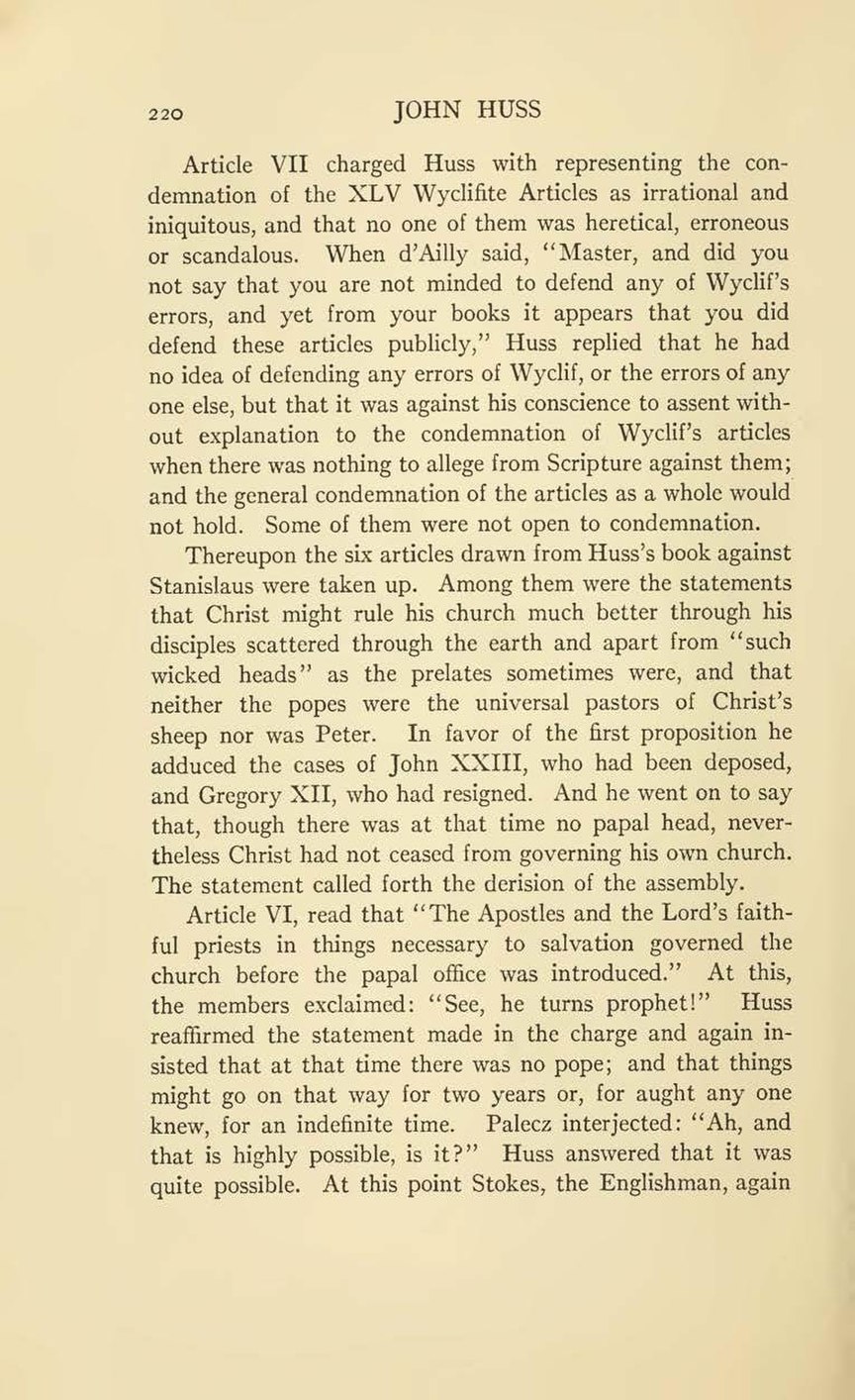Article VII charged Huss with representing the condemnation of the XLV Wyclifite Articles as irrational and iniquitous, and that no one of them was heretical, erroneous or scandalous. When d’Ailly said, “Master, and did you not say that you are not minded to defend any of Wyclif’s errors, and yet from your books it appears that you did defend these articles publicly,” Huss replied that he had no idea of defending any errors of Wyclif, or the errors of any one else, but that it was against his conscience to assent without explanation to the condemnation of Wyclif’s articles when there was nothing to allege from Scripture against them; and the general condemnation of the articles as a whole would not hold. Some of them were not open to condemnation.
Thereupon the six articles drawn from Huss’s book against Stanislaus were taken up. Among them were the statements that Christ might rule his church much better through his disciples scattered through the earth and apart from “such wicked heads” as the prelates sometimes were, and that neither the popes were the universal pastors of Christ’s sheep nor was Peter. In favor of the first proposition he adduced the cases of John XXIII, who had been deposed, and Gregory XII, who had resigned. And he went on to say that, though there was at that time no papal head, nevertheless Christ had not ceased from governing his own church. The statement called forth the derision of the assembly.
Article VI, read that “The Apostles and the Lord’s faithful priests in things necessary to salvation governed the church before the papal office was introduced.” At this, the members exclaimed: “See, he turns prophet!” Huss reaffirmed the statement made in the charge and again insisted that at that time there was no pope; and that things might go on that way for two years or, for aught any one knew, for an indefinite time. Palecz interjected: “Ah, and that is highly possible, is it?” Huss answered that it was quite possible. At this point Stokes, the Englishman, again
